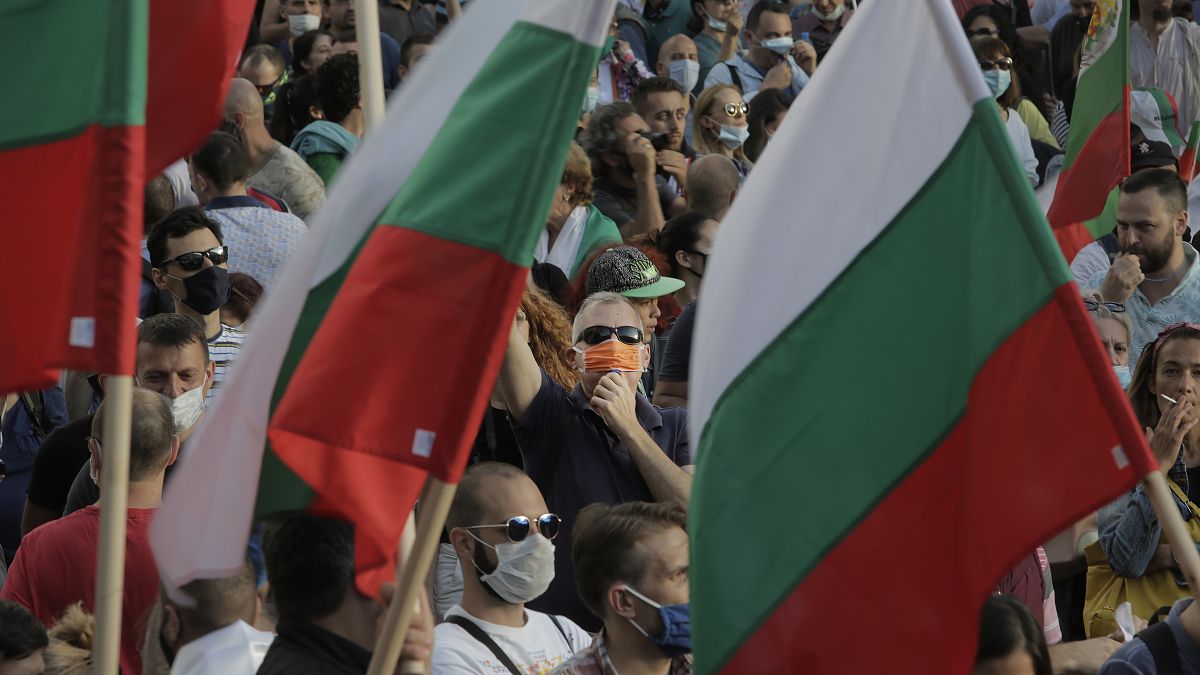Anti-government protests have been happening in Bulgaria every day for two weeks. We went to Sofia to find out why.
Thousands of protesters have again taken to the streets in Bulgaria to protest alleged government corruption, with many calling for the resignation of Prime Minister Boïko Borissov, his centre-right government and the chief prosecutor.
The demonstrations in Sofia on Wednesday were the 14th consecutive day that protesters have been calling for change.
"I'm here because I feel ashamed. I'm ashamed of our rulers, of their behaviour, of their arrogance. This has to change," said Anna, among protesters in the Bulgarian capital.
"One of our goals is snap elections. After that, we should concentrate on serious proposals to amend the constitution, and above all, we want the prime minister and the chief prosecutor to resign," said Arman Babikyan, one of the protest organisers.
Protests broke out in early July after heavily armed security officers raided the offices of President Rumen Radev, a vocal critic of the conservative ruling party's record on corruption. Radev accuses Borissov of having "links with the oligarchs".
"Bulgaria should become a country with the rule of law on the Western European model. We've been talking about this for 30 years, which is more or less my whole life," another protester, Alexander told Euronews.
Governance watchdog Transparency International ranks Bulgaria as the most corrupt of the 27 nations in the EU.
Many young people at the protest said they also wanted to be able to live in Bulgaria but currently were leaving for other opportunities.
"We're leaving to study in Vienna next month because of better education and better pay in the fields we'll probably be working in," Slav, another protester, said.
Borissov has refused to resign and says he will continue his third term as prime minister until general elections in March 2021.
This week Borissov survived a no-confidence vote in parliament - the fifth one since the government came to power.
_See our report from Sofia in the video player, above. _
